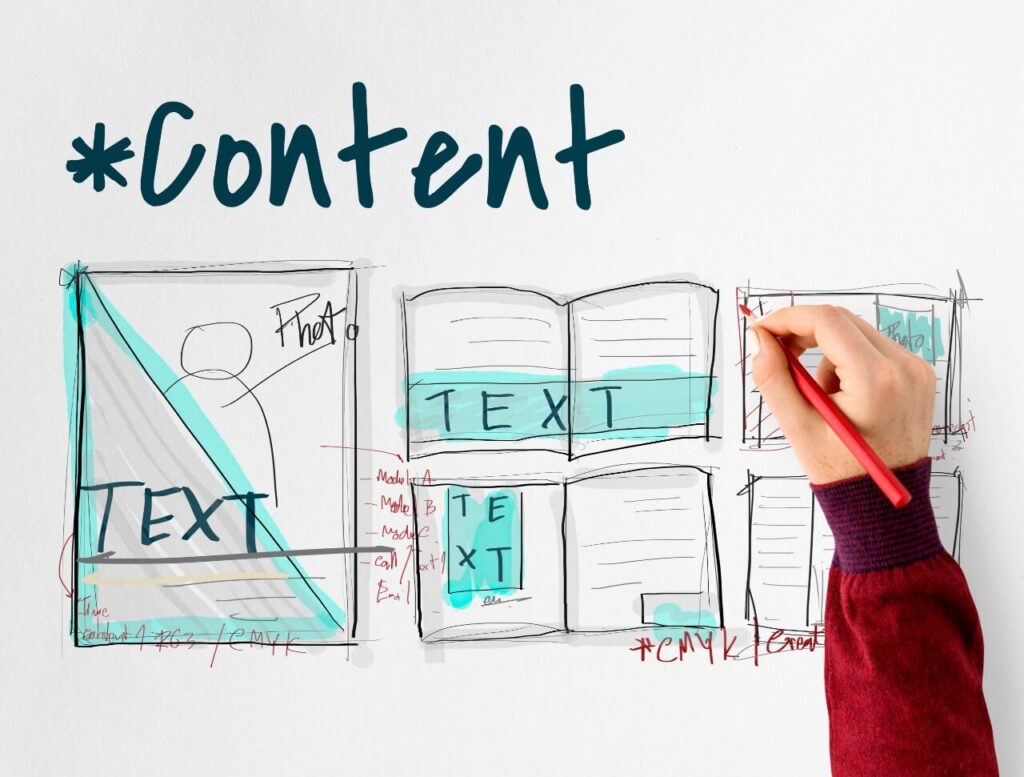It never hurts to update your content strategy plan and make sure it’s up-to-date, original and engaging for your prospects and consumers — regardless of when or how they intend to buy. Read on if you’re having problems planning for the future year or if you’re looking for some new ideas to add to your plan.
This article will look at what content strategy is, why your company needs one, and how to create one. We’ll also look at some successful content marketing strategies instances to get some ideas.
What is the definition of content strategy?
A content strategy is a plan for achieving your business objectives by utilising content (audio, visual, and textual). A great content strategy will engage your target audience at every point of the funnel, even after purchasing. You may achieve an SEO-focused content method to enhance your website’s visibility on search engine results pages (SERPs) and generate visitors to your products or services.
Early on, new business owners may believe that a content strategy is excellent but not essential. On the other hand, they produce high-quality content, which may be highly beneficial in establishing trust with new audiences and achieving long-term success.
A good content strategy is the cornerstone of your Attract and Delight stages in a buyer’s journey that follows the inbound marketing paradigm. You can use a content strategy for sales enablement and customer happiness and draw prospects to your brand. It will also help you in the growth of your business.
Plus, with 70 per cent of marketers actively investing in content marketing, you must build a robust content strategy to compete in your business—a few things to think about while developing a content strategy.
1. Who is going to read your content?
Who is your content’s intended audience? How many different audiences are you catering to with your range? Your content strategy can appeal to multiple types of users, just as your firm may have various kinds of customers. You can distribute materially personalised to each persona by using several content types and channels.

2. For your audience, what problem will you solve?
A good content strategy benefits people on both sides of your product: those still finding out their fundamental difficulties and those already utilising your product to overcome them. Your content allows you to create credibility with your target audience by supporting your delivery solution.
3. What distinguishes you from others?
Because your competitors’ products are likely identical to yours, your potential buyers will want to know what makes yours superior — or at least different. Perhaps your most valuable asset is that your company has been around for a long time. Maybe you have a distinct brand voice that distinguishes you from the competition.
4. On what types of content will you concentrate your efforts?
It would help if you met your audience where they are to determine which formats to focus on. While you might be enticed to begin a podcast or a YouTube channel because of how popular they have become in recent years, first figure out where your target audience lives.

5. How will you distribute your content?
You’ll be able to publish to various channels, from your website to social media, just as you may develop content in multiple formats. It will represent your target audience’s location. If your target audience enjoys long-form video content, YouTube is an excellent place to start. TikTok and Instagram are good options if you have a younger audience who likes rapid content.
6. How will you handle the creation and distribution of content?
It can be challenging to figure out how you’ll develop and distribute all of your material. It’s necessary to specify the following questions before you begin:
- What is being created by whom?
- Where is it going to be published?
- When is it ready to go live?
It may be simple enough in a small team if you are the lone decision-maker. You may need to collaborate with numerous content teams to figure out an efficient procedure as your firm grows. You can easily picture your company’s message and establish yourself as an expert in your market by organising a content editorial calendar around issues.

Why should marketers develop a content marketing strategy?
Content marketing support many companies in preparing reliable and cost-effective methods for their website traffic. It was proven to be crucial in increasing traffic to the Sales Blog over time – read more about blog strategy here.
Your evergreen content will provide:
- A consistent source of visitors and leads.
- Social media marketing
- Distributed content.
Furthermore, your material will assist you in getting leads, but it will also educate your prospects and raise brand recognition.
What is a content strategy framework?
Now let’s go into the details of developing a content marketing strategy. Are you curious about how to create a content strategy? It’s here.
1. Define your objective
What are your goals? What motivates you to create a content marketing strategy? Your approach should understand your objectives before you start planning.
2. Execute a personal research
To create a successful plan, you must precisely define your content’s target audience — also known as your buyer persona. It is especially true for people who are just getting started in marketing. You can create more relevant and valuable content that your target audience will want to read and convert to if you know who they are.
3. Conduct a content analysis
Most businesses begin with blog posts. If you wish to branch out into new formats, you can undertake a content audit to examine your top-performing and lowest-performing material. Then, decide which path to go next.
If you’ve been in the company for a while, look back at your content marketing efforts and results from the previous year. Determine what you can do differently in the coming year and set new objectives. Now is an excellent time to match your team’s goals with your company’s goals. A content audit may help you figure out what resonates best with your audience, uncover gaps in your topic clusters, and more, no matter where you are in the process.
4. Decide on a content management system
Content generation, dissemination, and analytics are essential aspects of content management. You want to invest in a content management system (CMS) so that you can quickly develop, manage, and track your content. You can plan, produce, publish, and monitor your outcomes all in one place. WordPress is another popular CMS and may add a WordPress plugin for free web forms, live chat, CRM access, email marketing, and analytics.
5. Choose the type of content you wish to make
You can develop several types of material, ranging from written content such as ebooks and blog posts to audio content such as podcasts.
6. Come up with content ideas
Now is the time to start brainstorming content concepts for your project. And get ready to publish your content.
7. Manage and publish your content
Your marketing strategy should include the types of content you’ll create and how you’ll organise it. You’ll be on the right track for producing a well-balanced and diverse content library on your website if you use an editorial schedule. Create a social media content schedule to promote and manage your content on other sites.


